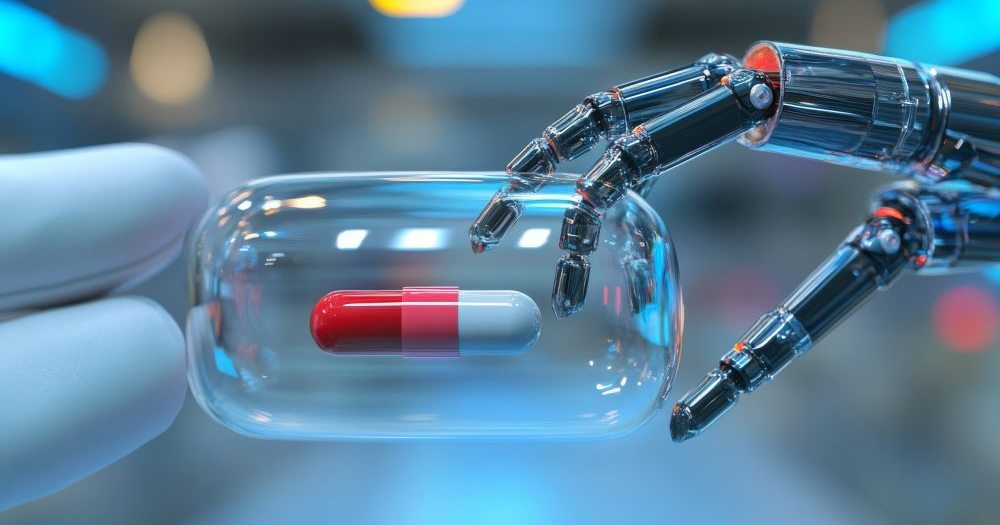AI helps uncover potential cancer-fighting use for cholesterol and alcohol dependence drugs

A quiet revolution is brewing in the world of cancer research — and it's being stirred by none other than artificial intelligence. In a striking collaboration between human scientists and a powerful large language model, researchers at the University of Cambridge have uncovered unexpected cancer-fighting potential in everyday medications like cholesterol-lowering simvastatin and disulfiram, a drug commonly used to treat alcohol dependence.
Rather than inventing new compounds from scratch, the team asked GPT-4 — a model better known for crafting essays and summarizing documents — to think like a scientist. The goal? To sift through mountains of published data and suggest low-cost, already-approved drug combinations that could fight breast cancer cells while sparing healthy tissue. And it delivered.
"This is not automation replacing scientists," said Dr. Hector Zenil of King's College London. "It's a new kind of collaboration."
How does it work?
The process played out like a back-and-forth brainstorm between man and machine:
- Researchers prompted GPT-4 to recommend combinations of drugs already on the market — but not traditionally used for cancer.
- The AI spit out 12 potential drug pairings, guided by patterns and hidden clues buried in scientific literature.
- Lab teams tested those suggestions on breast cancer cell lines. Three combos outperformed existing treatments.
- Those results were then fed back into GPT-4, which refined its suggestions and proposed four more combinations. Three showed promise again.
This wasn't a one-and-done exercise. It was a closed-loop system — an AI model iterating based on real-world feedback, like a chef tweaking a recipe after each bite.
It's also what Professor Ross King, who led the research, called a "scalable, imaginative layer of scientific exploration." Instead of relying on brute-force testing of thousands of compounds, the AI helped zero in on overlooked pairings grounded in biological rationale.
Why does it matter?
Cancer drugs are notoriously expensive and often come with brutal side effects. But what if we could repurpose drugs already sitting on pharmacy shelves — safe, cheap, and well understood?
- Simvastatin and disulfiram, while never designed for oncology, showed striking effectiveness against breast cancer cells in lab tests.
- Using known drugs fast-tracks the pipeline: many already have regulatory approval and well-documented safety profiles.
- The AI's ability to connect the dots between seemingly unrelated studies could uncover hidden gold mines in medicine cabinets.
"It can help us as human scientists explore new paths that we hadn't thought of before," said Professor King.
Even the AI's so-called "hallucinations" — the errors it's notorious for — proved useful here. Some of those left-field ideas turned out to be intriguing enough to test in the lab, and a few hit the mark.
The context
Drug discovery is like finding a needle in a haystack. There are thousands of molecules out there, and the traditional method — testing one after another — is slow, expensive, and full of dead ends.
Enter GPT-4, a model trained on oceans of human knowledge. It doesn't just regurgitate facts — it makes leaps, asks "what if?" and pulls threads that scientists might not have time or capacity to chase.
The team's work marks the first time a large language model has been used in a closed-loop drug discovery system — essentially giving the AI a seat in the lab. It won't be replacing scientists any time soon, but it's already proving itself as a kind of digital lab partner: tireless, imaginative, and just unpredictable enough to be brilliant.
Six promising drug combinations came out of this early work. None are ready for the clinic yet — extensive human trials will be needed — but the door's now open.
What's next? As Dr. Zenil puts it, "It's about letting AI help us look under stones we never thought to turn."
💡Did you know?
You can take your DHArab experience to the next level with our Premium Membership.👉 Click here to learn more
🛠️Featured tool
 Easy-Peasy
Easy-Peasy
An all-in-one AI tool offering the ability to build no-code AI Bots, create articles & social media posts, convert text into natural speech in 40+ languages, create and edit images, generate videos, and more.
👉 Click here to learn more


